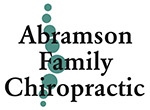Low Back Pain in Working Adults
Questionnaires completed by working-age adults not currently under care for low back pain revealed that 46.5% currently had some degree of low back pain and 72.3% presently experienced some level of low back-related disability. The findings reveal that many non-careseeking workers have low back pain and/or disability, which suggests that some level of pain and disability could be considered normal, acceptable, or manageable. Chiropractic care offers a conservative treatment approach for the management of low back pain and/or disability. Musculoskeletal Science and Practice, August 2022
Secondhand and Thirdhand Smoke Linked to Cervical Cancer Risk
Third-hand smoke is the invisible remnant of tobacco smoke that clings to surfaces. An analysis of data from the China Kadoorie Biobank study found that women with frequent exposure to either second-hand or third-hand smoke had a 22-24% increased risk for cervical cancer over the following decade when compared with their peers with less exposure to cigarette use. Environmental Research, September 2022
Eat the Rainbow
The carotenoids, flavonoids, betalains, and chlorophylls that give color to various fruit and vegetables are known to confer health benefits when part of one’s diet. An analysis of data from 86 studies with more than 37 million participants found the 42% of the health benefits associated with consuming fruit and vegetables are derived from these bioactive compounds and that individuals should strive to eat produce that’s red, orange, yellow, white, purple, blue, and green. Molecules, June 2022
Exercise at Work
If your workplace includes access to a gym, the American Council on Exercise
offers the following recommendations: schedule exercise on your daily calendar; pack workout clothes and get to work early, if needed; bring toiletries if the gym has showers; ask a co-worker to exercise with you; and keep a fresh change of work clothes at your desk, if needed. American Council on Exercise, June 2022
Vitamin D May Help Prevent to Dementia
According to a recent study, low vitamin D status may be a risk factor for dementia and up to 17% of dementia cases could be prevented by increasing vitamin D levels to 50 nmol/L. American Journal of Clinical Nutrition, April 2022
Wellness Visits Help Prevents Diabetes Amputation
New research finds that elderly type 2 diabetics who make annual wellness visits have a 36% reduced risk for major lower-extremity amputations. University of Virginia, June 2022
Quote: “A successful man is one who can lay a firm foundation with the bricks others have thrown at him.”
~ David Brinkley
This information should not be substituted for medical or chiropractic advice. Any and all health care concerns, decisions, and actions must be done through the advice and counsel of a health care professional who is familiar with your updated medical history.
